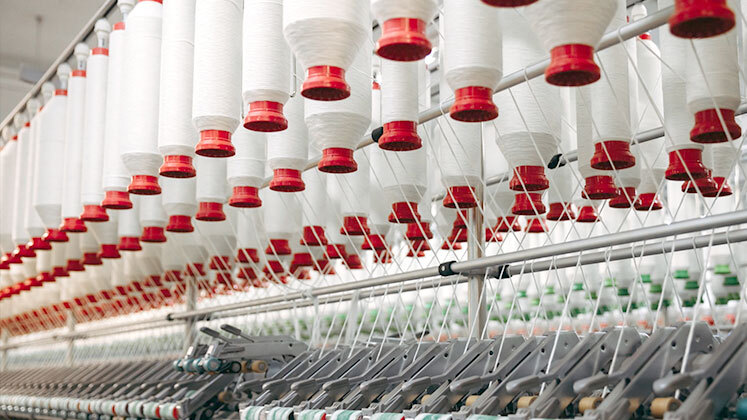India’s textile and apparel exports fell in October, prompting industry bodies to seek urgent relief measures to arrest what they fear will be a deepening decline in the coming months. During October 2025, India’s textile exports dropped 12.92% year-on-year, while apparel exports slid 12.88%. Combined textile and apparel shipments for the month were down 12.91% compared with October 2024.
Industry associations have appealed to the government for support to mitigate the downturn. The Confederation of Indian Textile Industry (CITI) has urged the Reserve Bank of India (RBI) to include spinning, weaving and processing units in the list of “eligible sectors” under the central bank’s Trade Relief Measures announced on 14th November.
Former CITI Chairman Sanjay K Jain stated that the October decline was expected, given that the US accounts for roughly 30% of India’s textile and garment exports. He observed that existing pipeline inventory was still moving, but fresh orders had largely dried up since August. He added that CITI expected the decline in exports to deepen to between 15 and 20% in November and December. Jain further noted that a recovery was likely only two to three months after a proposed India–US Bilateral Trade Agreement (BTA) comes into force.
CITI Chairman Ashwin Chandran reiterated the association’s call for spinning, weaving and processing units to be covered under the RBI’s relief framework, stating that such support would help safeguard the sector’s long-term growth. He stressed that including these units could prevent mills from cutting operations and reduce the risk of workforce reductions or wage cuts. Industry estimates indicate that nearly 2 million spindles have been permanently shut in India over the past five years due to financial stress.
Meanwhile, the Apparel Export Promotion Council (AEPC) has called for an extension of the Interest Equalisation Scheme and the Rebate of State and Central Taxes and Levies (RoSCTL) for at least five years, as well as the creation of a Market Diversification Fund to help exporters access high-tariff destinations through trade fairs and buyer–seller meetings. The AEPC has also sought duty-free imports of all textile and garment machinery, including equipment for sustainable and green manufacturing, to accelerate technological modernisation.
According to Mithileshwar Thakur, Secretary General of AEPC, the industry’s resilience is being tested by subdued retail orders in the US and EU. He said the organisation noted that high tariffs in the United States were forcing Indian suppliers to offer heavy discounts simply to retain their customer base.







